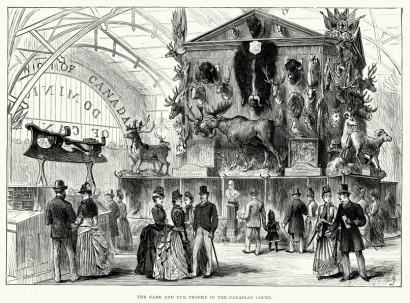 The term social conscience refers to the capacity of certain individuals, groups or social organizations to perceive those surrounding realities that require attention, to reflect on them and in some cases, to act to transform them. The idea of social conscience is today highly extended by the significant increase in population groups in inferior conditions (inferiority that is represented at the economic, ideological, ethnic and sexual level) and by the increasingly pressing need to act in a positive way in the modification of those social realities alternative to oneself.
The term social conscience refers to the capacity of certain individuals, groups or social organizations to perceive those surrounding realities that require attention, to reflect on them and in some cases, to act to transform them. The idea of social conscience is today highly extended by the significant increase in population groups in inferior conditions (inferiority that is represented at the economic, ideological, ethnic and sexual level) and by the increasingly pressing need to act in a positive way in the modification of those social realities alternative to oneself.
Being aware of something means having enough knowledge. In other words, when our reason allows us to know a reality, we say that we are conscious.
From the point of view of psychology, the consciousness of the individual expresses his rational predisposition to understand the world around him.
The social awareness
As individuals we are aware of what is happening around us and that degree of awareness is precisely the essence of our social awareness as individuals. On the other hand, society itself forms an autonomous entity and in this sense a community also has a certain social conscience. Thus, when certain problems are recognized within society that affect everyone in some way, a collective social conscience is produced.
Very strongly linked to the ideas of solidarity and commitment, social conscience is the first step on the way to the alteration of structures of voluntary and involuntary discrimination exerted on certain social groups within a community.
Social conscience, therefore, has to do with the possibility of being aware of the problems intrinsic to a society that require a solution. Although the idea of social conscience is normally used to refer to the need to act for the benefit of those who live in situations of poverty, marginalization and exclusion, it can also refer to the importance of changing structures or patterns of employment. behavior that affect the whole of a society, for example, caring for the environment, respecting traffic rules, etc.
Social consciousness in Marxism
In Marxist philosophy the concept of social conscience is key. Thus, each social group has a certain level of consciousness. Workers are or should be class conscious to recognize themselves as a collective. If you do not recognize yourself as a class, it is impossible for you to transform your reality.
For Marx the exploitation of workers is the fundamental element to awaken their collective conscience. It is not a theoretical reflection, but a first step to change reality and the social model.
Social awareness and participation
A person can have a lot of information about the problems that affect society (unemployment, poverty, exploitation, etc.). However, knowing reality is not enough to change it. For this reason, some individuals decide to actively participate in a project. There are multiple ways to put into practice a transformative social conscience, but all of them go through active participation. Among the many examples of participation we could highlight the following: financial donations, solidarity collaboration, volunteer projects with NGOs, etc.
Enemies of social conscience
Most of the people affirm that they have a social conscience in relation to the injustices that are around them or in other parts of the world. However, it is very likely that these types of statements are a form of self-deception or a simple declaration of good intentions.
Social consciousness, in its individual or collective dimension, has a series of "powerful enemies": stark competitiveness, individualism, cultural supremacy, globalization, non-responsible energy consumption, and so on.
There are many ways that social conscience can appear in an individual or social group
While the theorists argue that the most advisable thing is to ensure the presence of social conscience from the time one is a child (so that it is always present in the person, for which informal and formal education systems are essential), conscience Social can also be awakened in people and be acquired and / or expanded over time, according to the momentary needs of each social group. Thus, although people of a certain age have not been educated in the acquisition of social awareness regarding different issues, advertising campaigns of various kinds can be used to generate spaces for reflection on the importance of it at specific moments in the existence of a community.









